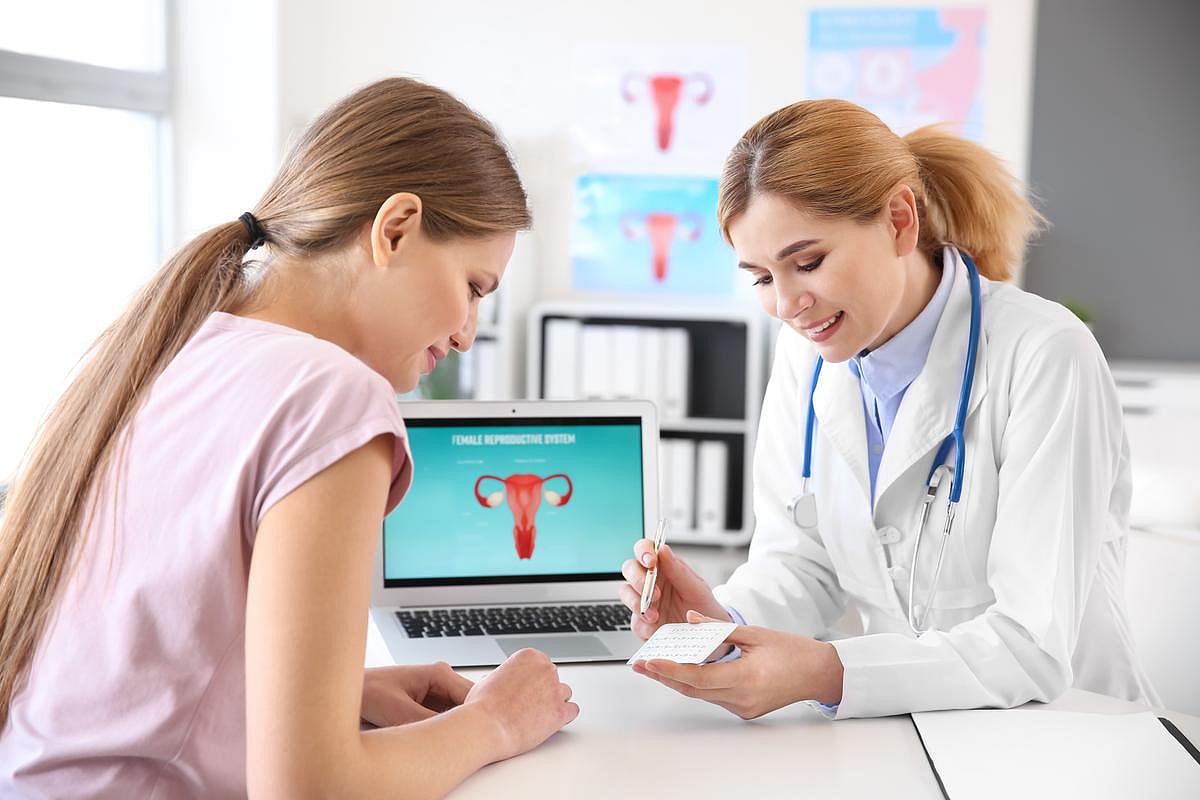Get Healthy!

- Ernie Mundell
- Posted December 9, 2024
Ovary Removal Could Greatly Raise Some Women's Odds for Alzheimer's
Women who have had their ovaries removed at a young age and also carry a gene predisposing them to Alzheimer's disease may face a much higher odds of developing the brain illness, a new study finds.
However, the Canadian researchers stressed that any excess risk for dementia among these women can be lessened with hormone replacement therapy (HRT).
That finding "highlights the importance of estrogen-based therapies in decreasing Alzheimer’s disease risk for women who have had their ovaries surgically removed before the age of 50,” said study co-author Dr. Esme Fuller-Thomson. She's a professor of social work at the University of Toronto.
Her team published its findings recently in the Journal of Alzheimer's Disease.
Premenopausal women may opt for removal of the ovaries (oophorectomy) for any number of medical reasons. For example, recurrent ovarian cysts (endometriosis), a heightened genetic risk for ovarian cancer or severe premenstrual syndrome could all lead a woman to undergo the procedure.
It's long been known, however, that estradiol, an hormone produced by the ovaries, appears to protect brain health in women and help ward off dementia.
Women (and men) who carry a certain gene known as APOE4 are already at heightened odds for Alzheimer's disease.
Fuller-Thomson's team wondered how premature loss of the ovaries might affect dementia risk in female APOE4 carriers.
Their study used data on almost 35,000 British women enrolled in the UK Biobank, all aged 60 or older.
About 4,400 of the women had undergone oophorectomy before the age of 49, with an average age of 43 at time of the procedure. The other approximately 30,000 women underwent natural menopause at an average age of 54.
The study revealed that the women who had had their ovaries removed and carried the APOE4 gene faced more than four times the risk of developing Alzheimer's disease, compared to women who'd undergone natural menopause and didn't carry the gene.
So, oophorectomy and the resultant hormonal loss "might interact with the APOE4 allele to further increase Alzheimer’s disease risk, placing women with early bilateral oophorectomy and APOE4 in a state of double jeopardy,” explained study lead author Dr. Gillian Einstein. She's chair of Women’s Brain Health and Aging at the University of Toronto.
Other factors might help women avoid dementia, however. For example, the study found that a high level of education was linked to a 9% drop in Alzheimer's risk, regarding of how a woman entered menopause.
And, in a finding that remains puzzling, increasing body weight appeared to help lower Alzheimer's risk -- but only among women who'd undergone early removal of their ovaries. The researchers theorize that fat cells' production of estrone, an estrogen-like hormone, may explain that benefit.
Also, for women who'd undergone oophorectomy, initiating HRT halved the excess risk for dementia, the study showed.
However, "hormone therapy was not associated with a lower risk of Alzheimer’s disease among those who went through natural menopause at aged 51 or older," Fuller-Thomson said in a university news release.
“The study suggests one important early life reason why more women than men have Alzheimer's disease and also provides a better understanding of resilience factors that might fortify women with oophorectomy against Alzheimer's disease,” Einstein concluded.
More information
Find out more about the APOE4 gene at the Mayo Clinic.
SOURCE: University of Toronto, news release, Dec. 5, 2024






